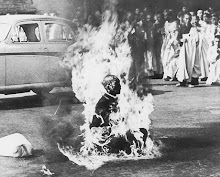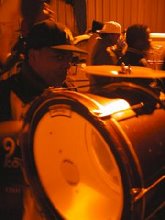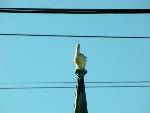All the way to Mandalay.
Take that Burma Night Train
All the way to Mandalay.
Go find that Nobel Lady!
Go knock on her front gate!
If you want to talk of freedom
turn off your T.V.
If you want to speak of freedom
You had better turn off your T.V.
And if you want to Speak to Freedom...
You'd better talk to Aung San Suu Kyi!

I say Aung...San...Suu...Kyi!
I say Aung.. San...Suu...Kyi!
If you want to Speak to Freedom
You'd better to talk to
Aung San Suu Kyi!
You might take a bus
You might take a plane
You might make it or bust
You might go insane
but we gonna pull that Burma Night Train
all the way to Mandalay!
Go find that Nobel Lady!
Go knock on her front gate!
Knock On Her Front Gate!
Take that Burma Night Train
all the way to Mandalay.
Take that Burma Night Train
all the way to Mandalay.
Go to find that Nobel Lady.
We going to knock on her Front Gate!
'Please use your liberty to promote ours"
Kyay Zoo Pyu Pea .... Koo NyiBar
Kyay Zoo Tin Bar Dae
Om Mani Padme Hum
By Bruce Biles (c) 2007
Update 5/30-Due to rather quick interest in this song, I would like to offer it to be copied non-profit by anyone who would do the honor of keeping the music "in the pocket" and true to its composition, to spread and share and perhaps motivate the world to go to Mandalay, find Aung San Suu Kyi
--and Knock On Her Front Gate.
Any "profits" gained by my application of the copyrights will go
from me to Aung San Suu Kyi and any group promoted on the Burma News Ladder, founded by James Boyce--and without which I would have never been introduced to and hence fallen completely in love with the people of Burma.
It is to their joy,
To Freedom For Aung San Suu Kyi,
that I wrote and dedicate this song.
Please feel free to email me from profile.
Thank you,
Bruce Biles



























